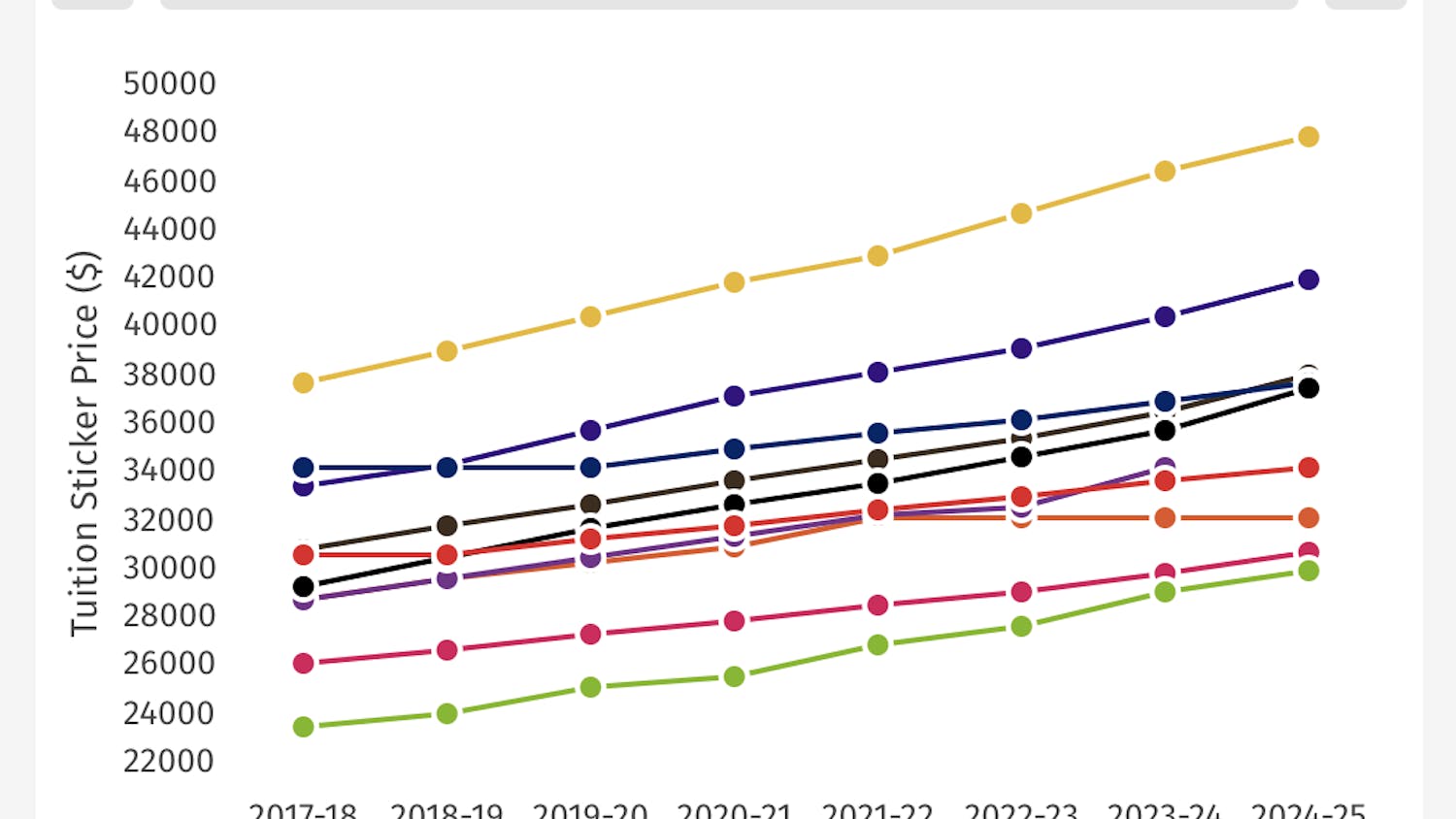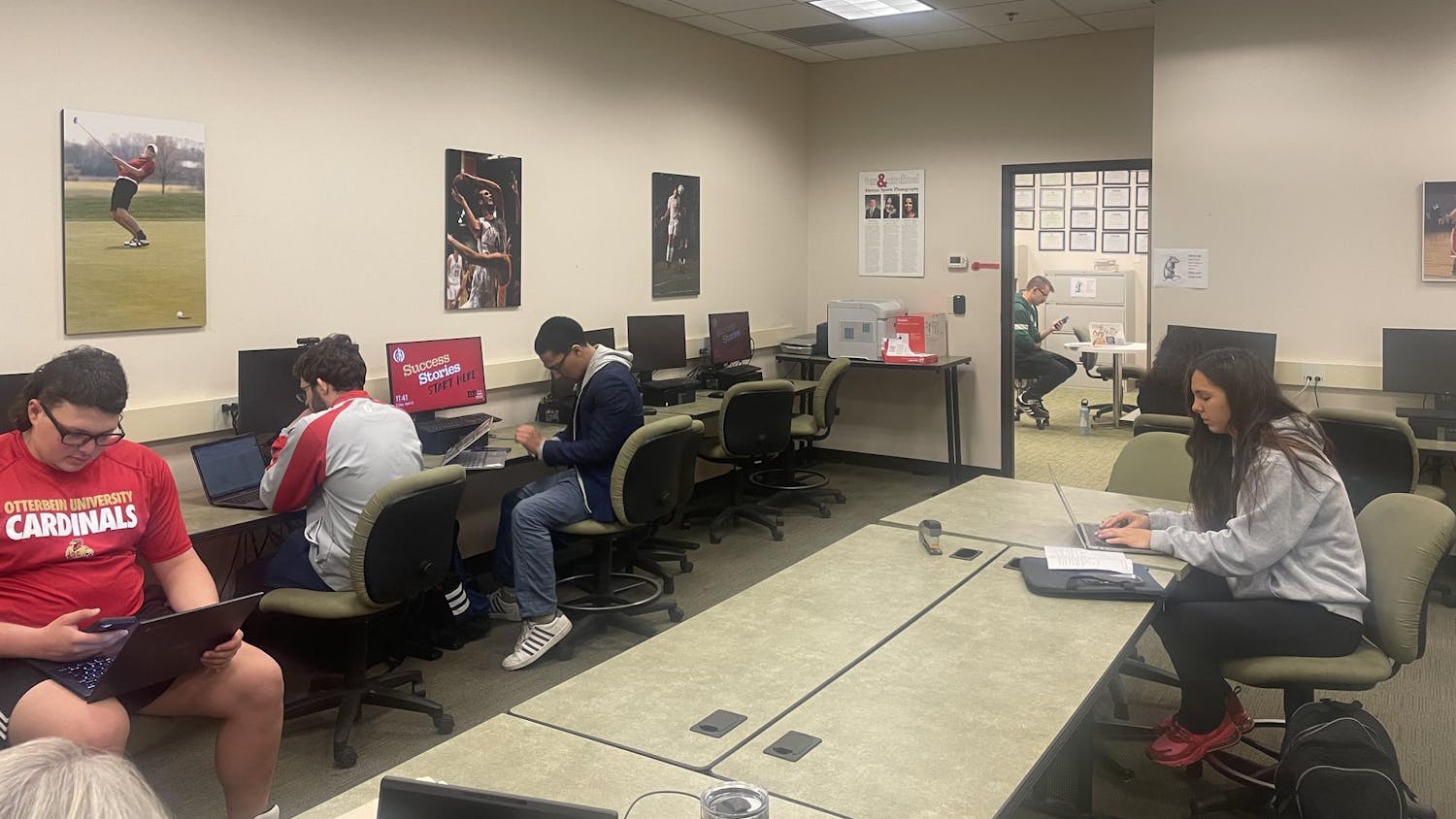The average college student spends approximately $900 a year on textbooks. The estimated price for Otterbein students is even higher at $960, according to a page on the school's intranet.
Luckily for students, new legislation passed by the House of Representatives last month will work to offset inflated textbook prices.
The bill, which reauthorizes the College Opportunity and Affordability Act, will give billions of dollars in increased financial aid to schools. It will also change the way the textbook industry works.
"The way the market operates, price isn't a part of the transaction," said Nicole Allen, director of the Ohio Student Public Interest Research Group (Ohio PIRG) textbook campaign. The organization works with other state PIRGs and runs MakeTextbooksAffordable.org.
Currently, according to Allen and the PIRG Web site, professors will choose a book for a particular class, but many publishers do not disclose the actual price of that book. Oftentimes the book comes with supplemental materials, such as workbooks and CDs, which drive up the costs. Allen stated that PIRG research has found that 65 percent of professors say they rarely or never use these extra materials in their classes.
"I pay for my schooling and my books," said freshman Kaitlin Yu. "[The price] is a little overwhelming."
These materials can also make the books harder to sell back. In many cases, the bookstore cannot buy back just the book itself if the workbook has been used or the CD is missing
The organization also found that publishers produce new editions of textbooks every three and a half years, sometimes unnecessarily. PIRG claims that when the new books come out, faculty and college bookstores have no choice but to use the newer, more expensive edition.
Fortunately, the new bill would require all publishers to disclose book prices when being sold to teachers. It would also cause supplemental materials to be sold separately.
Allen said it will also ask institutions to give students a book list before the quarter or semester starts so students can "plan ahead."
However, she said that "legislation is only part of a larger solution. Really it comes down to the fact that textbooks are expensive."
Currently, the PIRG organizations are working on other ways to make textbooks affordable. They are encouraging professors to use "open textbooks," which are books that can be found online for free. "We think it will really break open the market," she said.
"Students don't have a whole lot of economic power in the situation," she said, "because you have to buy the book."
Students can avoid high prices by shopping online and exchanging books with other students. According to Allen, some schools have organized "bookswaps," where students bring old textbooks and give them to other students in exchange for books they might need.
This is a better alternative for students like Yu - rather than not buying the book at all - to cut back on costs. "I know I paid $400 my first quarter and I've tried not to buy them this quarter," she said.
Even though the revised College Opportunity and Affordability Act has already passed through the House, it will not go into action yet. It first must be made compatible with a similar version that has been approved by the Senate. It will also have to overcome opposition from the White House, which has said they will seek to change some provisions of the bill before they can be put into place. t&c;





